Triennial Sunday School Conference at Leicester
Held in 1904
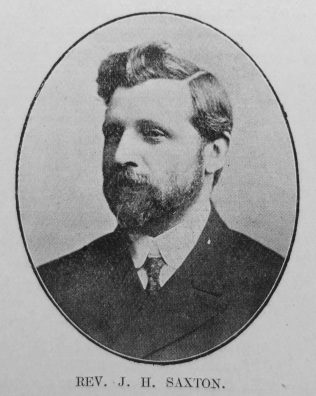

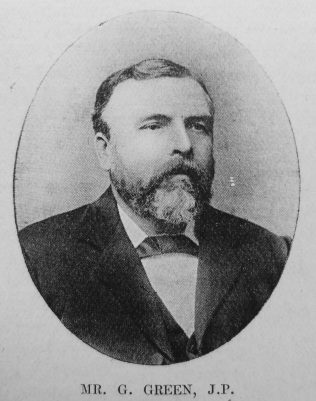
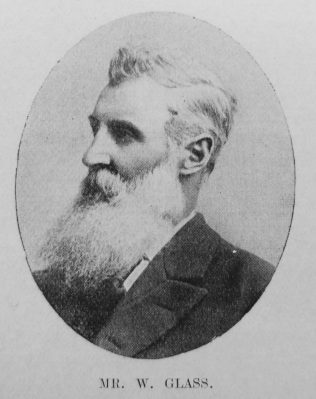
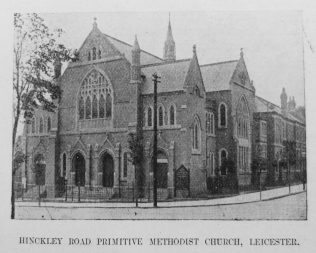
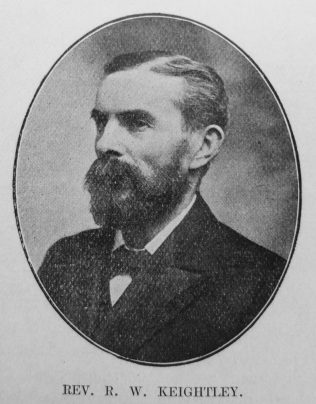
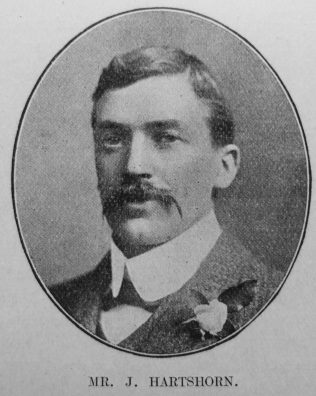
Transcription of Sketch in the Primitive Methodist Magazine by S.S. Henshaw
The sixth Triennial Sunday School Conference was held at Hinckley Road Church, Leicester, October 14th to 18th, 1904. The preceding Conferences had been held at Manchester, Leeds, Sheffield, Birmingham, and Hull, and each had been full of power and usefulness. But the general opinion of those who had attended them all, and so were capable of judging, was that the Leicester Conference for excellence of tone, quality of work, brightness of spirit, and splendour of effect stood at the head of the list. A number of favourable circumstances account for this happy issue.
Leicester is a fine town. It is a great Free Church centre. It was the home of such distinguished preachers of the gospel and champions of religious liberty as Robert Hall, J.P. Mursell, and Edward Miall. Of the 122 places of worship it contains, considerably more than half belong to the Nonconformists, and only 33 to the Established Church.
Primitive Methodism flourishes in Leicester. We have four good circuits and Highfields Mission, ten ministers and thirteen churches in the town. Some of our properties are large and costly. A number of them are comparatively new and in their school accommodation provide most amply and suitably for the conduct of work among the children and young people. Hinckley Road church and schools, for instance, where the Conference was held, occupies a first class position, in a good neighbourhood, amongst an immense population, and has two assembly halls connected with the school and a capital suite of class rooms. Its machinery is up-to-date and its management is of the best. The result is that the school attracts the young life of the locality and is doing magnificent service in rearing a generation of young and enterprising Christians. The school has over 1,400 scholars, the largest in Primitive Methodism, and scores, hundreds of children have had to be turned away through sheer lack of room.
Leicester people breathe an atmosphere of independence and liberty. Back in the old Chartist days they fought for freedom. Many a decisive blow in its behalf has been struck by the inhabitants of this famous Midland town. Again and again they have raised its banners, bravely defended them, and carried them to victory. They have the habit of having a mind of their own and of having the courage to assert it, and of tenaciously sticking to it. Temperance, Liberalism, the cause of religious equality and all kinds of social Reform owe much to the sturdy stand they have taken and to the boundless energy they have displayed. Leicester abounds in evangelical Christians, radical politicians and passive resisters. Yes, it was to he expected that the unjust, oppressive Education Acts of 1902 and 1903 which establish and endow sectarianism once more, and seek to make it triumphant in the public schools, would find here some of their strongest opponents. Clear-headed, clear-sighted, honest-hearted Free Churchmen and women can do no other than use their utmost endeavour to smash these unhallowed measures. And smash them they will, and before long, too.
And Leicester people are kind and genial. Their hospitality is well known. They entertain strangers with lavish generosity. They not only open their homes to you, but take you to their hearts and accord you a welcome that puts you on easy terms with them in an instant. It was this happy home life with our hosts and hostesses that helped to keep the Conference in such perfect good humour. And this genial hospitality of the Leicester friends was typified in the gracious reception given to the delegates and their hosts and hostesses by the Mayor (Ald. A.E. Sawday) and the Mayor Elect (Councillor S. Hilton). The Mayor belonged to the Wesleyan Church. The Mayor Elect is, as readers will know, a popular local preacher and a liberal member of our own church. The occasion was also graced by the presence of the Mayoress and the Mayoress Elect. The reception was held in the Museum and Art Gallery. Cordial words of welcome were uttered by the hosts of the evening, to which the Rev. T.H. Hunt, ex-President, replied in his best vein. There were refreshments, delicious music and songs, inspection of pictures and art treasures, the meeting of old friends and the making of new ones, and an abundance of chat, gossip, laughter, mirth. The whole evening passed off most pleasantly. It was a delightful introduction to the duties and gatherings of the next few days.
The delegates to the Conference came from all parts of the Connexion. There were about two hundred and twenty of them. They were composed of the Connexional officers, the officers of our Sunday School Union, and the representatives of the Districts. The District representatives are elected by the District Sunday School Committees, and each District elects the same number that it is entitled to send to the Annual Conference. They are elected on the same principle of proportion as the delegates to the Annual Conference, there being one minister to two laymen. The members of the General Sunday School Committee are ex-officio members of the Conference.
The Leicester ministers and the secretaries of the local arrangements’ committee were also elected as members by the General Sunday School Committee. Twenty of the representatives were ladies. It was evident that the Districts had made a wise and careful selection of delegates. There is no doubt that they represented the very pick of our Sunday School teachers and workers. We had with us the Rev. R. Harrison, President of the Conference, who preached the opening sermon, and G. Green, Esq., J.P., the Vice-President, who took an active part in the deliberations.
The sessions of the Conference opened at 9 a.m. on Saturday morning and closed at 5 p.m. on Tuesday afternoon. We had two sessions at day covering six hours’ work. We had a full programme and it included a great variety of subjects. But all the subjects were strictly and directly related to the life and purpose of the Sunday School. We had sixteen papers, a lecture, and a special address. Readers of papers were allowed fifteen minutes; leaders of discussions five minutes, and no speaker who took part in the discussions was allowed more than five minutes. When time was up the chairman’s bell rang and everybody was kept to time. The three general topics were: Saturday, “Organisation and Teaching; ” Monday, “Work and Worship;” Tuesday, “Seeking and Saving.” Under these heads were grouped a number of questions of vital importance, and that are occupying or should occupy the attention of the Sunday School World to-day. Papers and speeches were all of an excellent order marked by intelligence, capacity, insight, and enthusiasm for the welfare of the young people. Everybody did well. The discussions were lifted to a high plane, and the interest of the sessions from first to last was well sustained. The lecture by Professor H. Thiselton Mark, M.A., author of “The Teacher and the Child,” and Master of Method at Owen’s College, Manchester, on Saturday afternoon, on “Power in Teaching,” was a rare treat. It was wonderfully enjoyed. It was characterised by great intellectual clearness. It showed a wide range of knowledge, richness of illustration, and a marvellous strength and skill of application. One of the most beautiful things about it was its fine spiritual inspiration and tone.
The public meetings and Sunday services were attended with much blessing and power. Delegates supplied all the pulpits of the Leicester circuits on the Sunday, and many of the chief pulpits in adjoining circuits. Special children’s services were held in the afternoon in all the schools. There were cheering reports of adult conversions and of many children and young people being gathered into the Kingdom of God. W. Glass, Esq., presided over the Christian Endeavour Rally on Saturday night, Mr. W. Parker being Vice-Chairman. By rousing addresses the speakers, Rev. W. Spedding, N Jefferson, and Mr. T.R. Wilkinson stirred and inspired the audience. The Monday evening meeting was another good time. George Green, Esq., J.P., Vice-President, was in the chair, and Mr. G. Holland, of Sunderland, Vice-Chairman; speakers, Revs. T. Parr, M.A., G Bennett, and Councillor W. Windsor. Each man in his own style gripped the audience and made a deep impression upon its heart and mind. The series of services and efforts were brought to a fitting close on Tuesday evening by useful public meetings at Fosse Road, Curzon Street, and Claremont Street.
The last Session of the Conference on Tuesday afternoon dealt with Public Questions in relation to our Sunday Schools, and resolutions were passed in condemnation of the education measures of the Government, in support of Passive Resistance, and expressing admiration of the attitude of Wales in the matter; against war and in favour of International arbitration; against the Licensing Act of last session; denouncing the habit of gambling and demanding legislative action to put it down; calling attention to the evils of juvenile smoking and urging its suppression by moral methods, and by the prohibition by the State of the sale of tobacco in any form, to children under eighteen years of age.
To give a summary of the points emphasised by the Conference would require the space of a whole article, and that a long one too. But among the many there are a few that might, that must be mentioned. We will run through them rapidly: 1. That notwithstanding the criticism they are at present receiving, Sunday Schools are doing splendid work among the children and for the churches and the nation. 2. They are making steady progress towards efficiency. There is gradual improvement in instruction, organisation, and methods. 3. In no branch of Christian service is greater devotion and self-sacrifice displayed than by our Sunday School teachers and workers. 4. Better premises are needed in many cases. 5. And better teaching. 6. The ideal of the teacher’s office should be exalted. 7. Care should be exercised in the selection and training of teachers. 8. Our text-book is the Bible – we have to expound and enforce its doctrines – therefore we should know the Bible and what the latest, ripest and most reverent scholarship has to say about it. 9. A wider, deeper interest should be taken in the Sunday School by Church courts and the great body of Church members. 10. Maps, pictures, blackboards should come into more general use. 11. Occasionally such subjects as temperance, Primitive Methodist and Free Church history and principles should receive special treatment. 12. The practical value of Institutes in large schools, or of adult or young men’s and young women’s Bible classes in smaller schools. 13. The wisdom of giving the best possible attention to the infants’ department. 14. The urgency of securing at the earliest moment of their lives the children for Christ and the Church, and 15. Of making suitable provision for their Christian nourishment and culture. 16. The necessity of maintaining in the school a pure, bright, lofty, spiritual tone and atmosphere. 17. Our work among the young should be diligently pursued on the week days, and their readings, recreations, etc. be turned by us into helpful Christian courses.
No adequate idea can be given of the worth and fertility of such a Conference in a brief article like this. But the Report of it will be published in pamphlet form, including all the papers that were read, to be sold at sixpence each, and orders may be forwarded at once to the general secretary.
The results of the Conference must be exceedingly beneficial and widespread. Those who took part in it were immediately and immensely benefited in intellect and heart, and through them its ministry will be perpetuated. They will carry the seed with them into their several fields of toil and it will take root and bring forth fruit. It must prove an abiding source of inspiration and encouragement to all our Sunday School workers. It will stimulate their thought, enrich their ideas, enlarge their outlook, and give them faith, strength, and hope. It will afford them a more accurate knowledge of the duties and difficulties of their task, help to complete their equipment and to lead them in the path of triumph. We believe that the Triennial Conference, Leicester, 1904, will form an epoch-making event in the history of our Sunday Schools, and will distinctly advance us towards that perfectness of organisation, devotion, and achievement that we all so anxiously desire and seek.
References
Primitive Methodist Magazine 1905/106





No Comments
Add a comment about this page